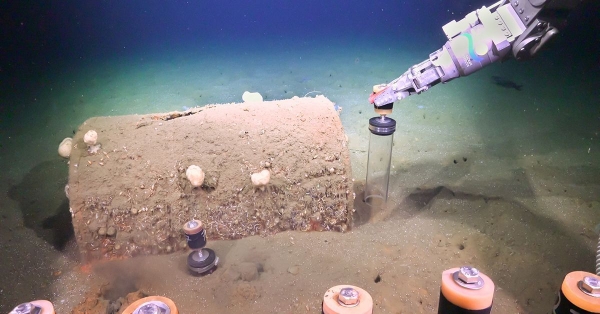In the 1940s and 1950s, the ocean off the coast of Los Angeles was a dumping ground for the nation’s largest manufacturer of the pesticide DDT – a chemical now known to harm humans and wildlife.
Due to the stubborn chemistry of DDT and its toxic breakdown products, this pollution continues to plague L.A.’s coastal waters more than half a century later. While legal at the time, details of this industrial-scale pollution of the marine environment at a dump site some 15 miles offshore near Catalina Island have deeply concerned scientists and the public since they gained wider recognition in 2020.
Now, new research from scientists at UC San Diego’s Scripps Institution of Oceanography and San Diego State University (SDSU) finds deep-sea fish and sediments collected from near the Catalina Island offshore dump site are contaminated with numerous DDT-related chemicals.
The study, published May 6 in the journal Environmental Science and Technology Letters and funded by the National Oceanic and Atmospheric Administration, suggests that the DDT-related chemicals dumped into the ocean decades ago may still be making their way into marine food webs.
Read More: University of California - San Diego
Researchers aboard Research Vessel Falkor used a remote operated vehicle to collect sediment push cores off the coast of Los Angeles during an expedition in July 2021. (Photo Credit: Schmidt Ocean Institute)




